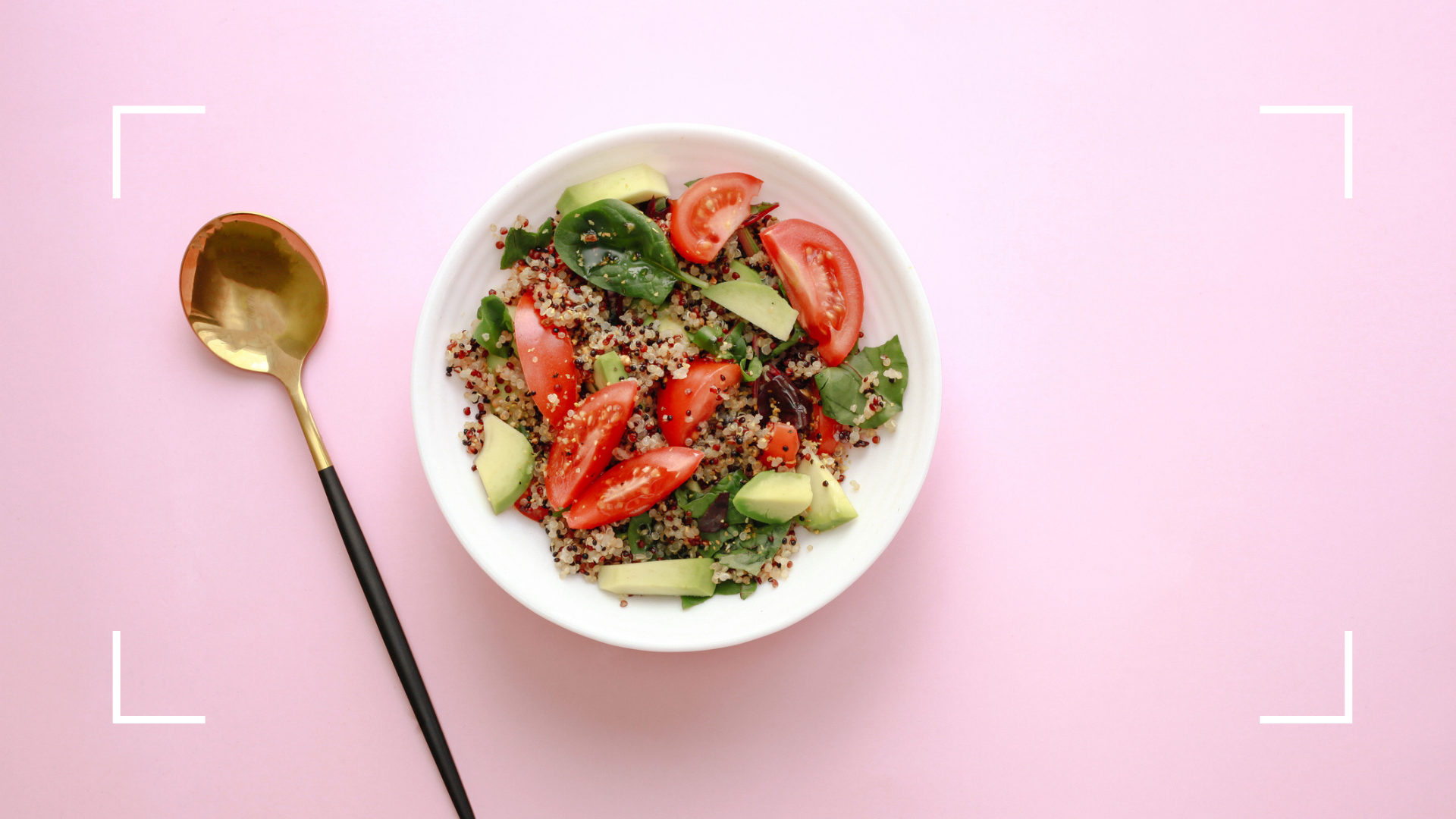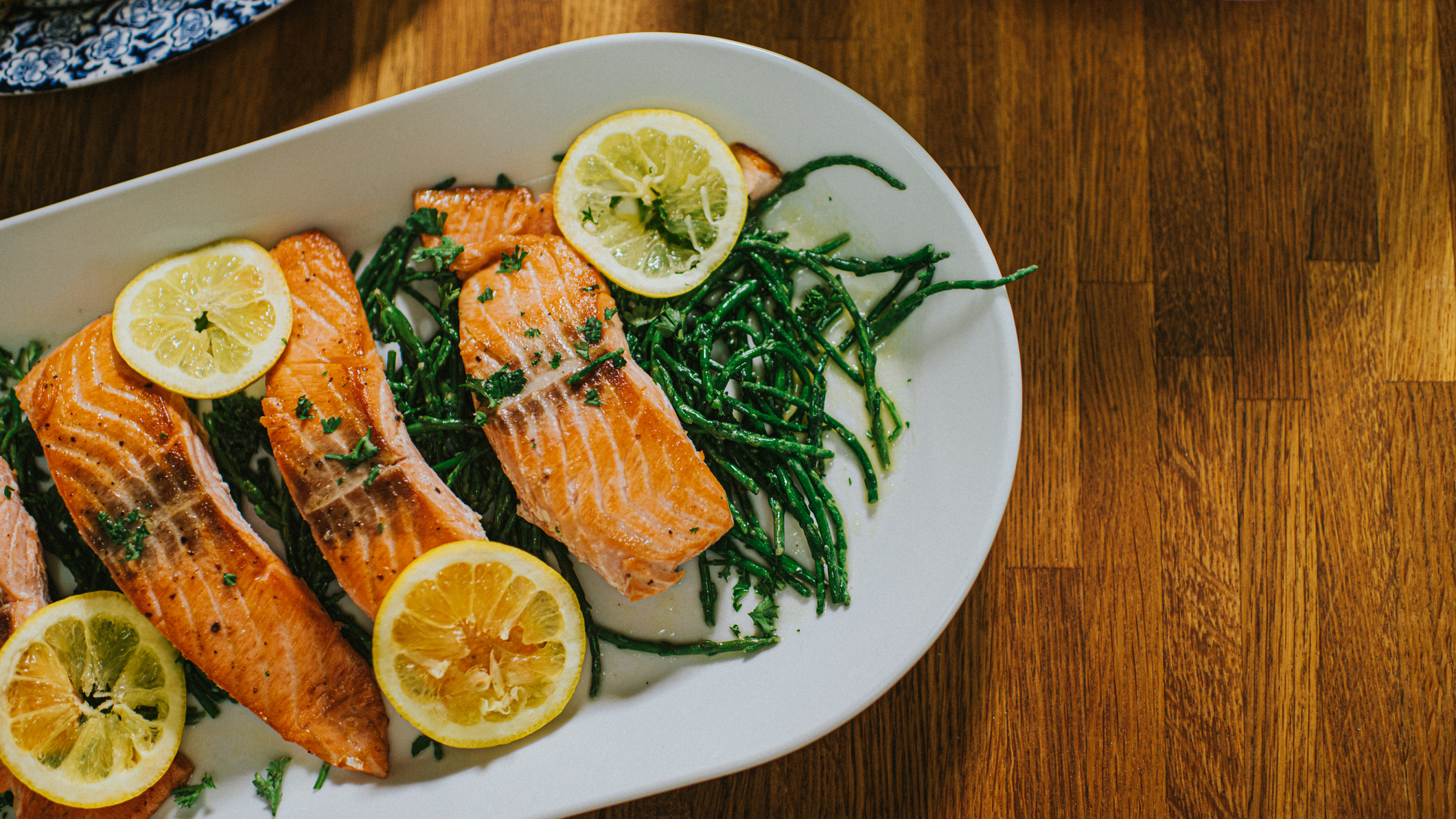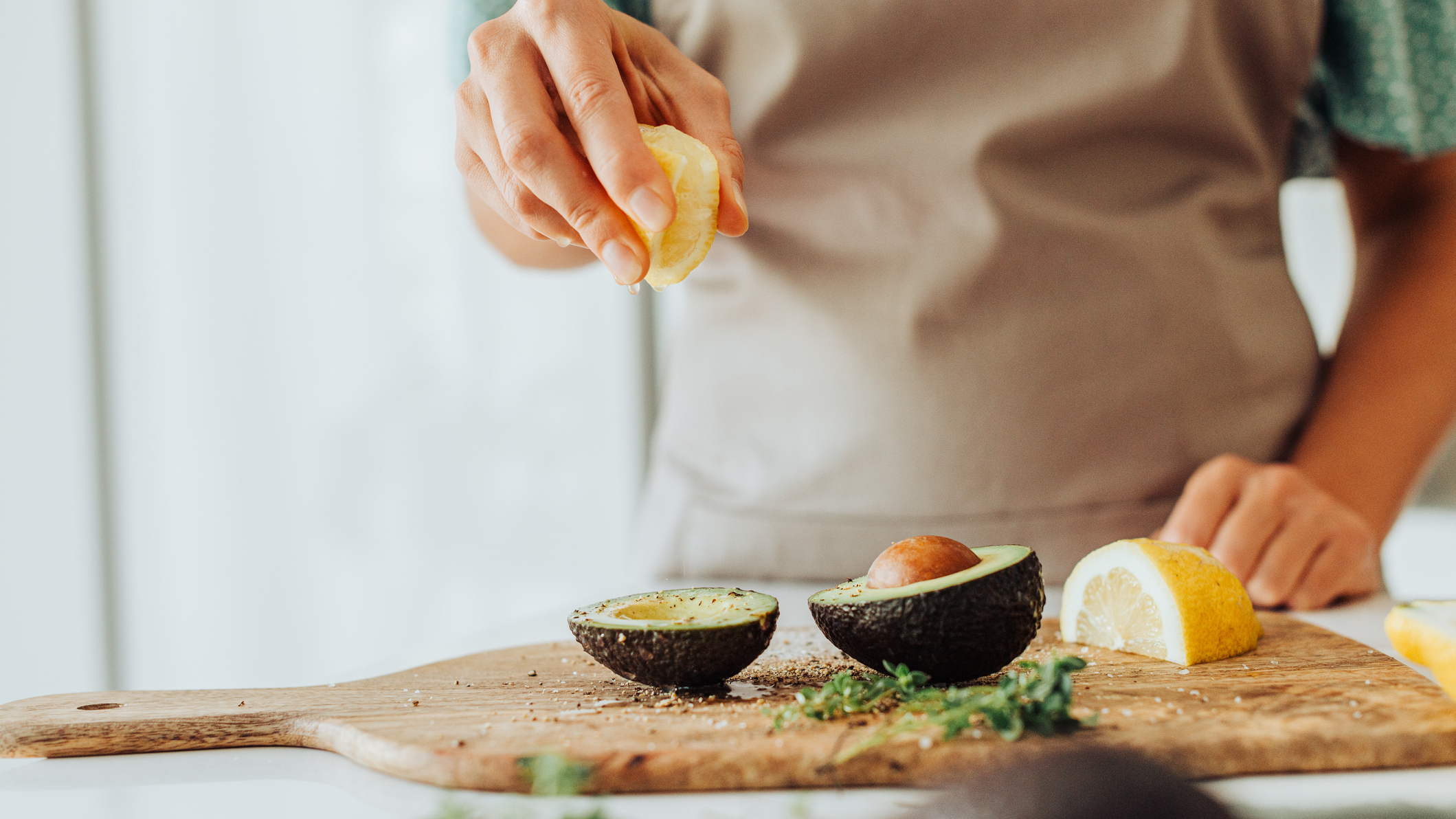Keen to try the keto diet plan for weight loss? Here's what you should know
The keto diet plan is beloved among celebrities—but the high-fat eating regime may not be the healthiest choice


You may have heard the keto diet plan crop up increasingly. It was the most searched for eating regime online last year according to research, and is beloved by celebrities including Kim Kardashian and Megan Fox. But this high-fat, low-carb approach to nutrition might not be the best option when it comes to healthy, sustainable weight loss.
While the Mediterranean diet has been proven by science to nourish the body, the keto diet—properly known as the ketogenic diet—has some downsides to bear in mind. Read on to find out everything you need to know about the popular eating regime, the foods that should be on your shopping list, and how to ensure it doesn't harm your physical wellbeing...
What is the keto diet?
“The ketogenic diet is a low-carbohydrate, high-fat diet,” says dietitian Dr Carrie Ruxton, from The Health & Food Supplements Information Service. It began as a medical treatment for refractory epilepsy, but is now widely used to improve general health and aid fat loss.
How does it work? “The keto diet involves drastically reducing carbohydrate intake to around 20g to 50g per day and replacing it with fat," explains Dr Ruxton. "This drastic reduction in carbs puts the body into a metabolic state called 'ketosis'. This involves the body producing ketone bodies out of fat, and using them as an energy source instead of carbohydrates. It is also worth noting that, for this to happen, protein should be moderated too—this is because protein can be converted into glucose if consumed in high amounts, which may slow the transition to ketosis."
If you're wondering how to lose weight, the keto diet is widely adopted for fat loss. "The presence of ketones in the blood can make you feel less hungry, although this still requires clarification," explains Dr Ruxton, of how it may help. “Reducing carbs may involve avoiding many snack foods and desserts, which can also help reduce calorie intake." Additionally, since you'll consume lots of 'health' fats, like good-quality oils, avocados, oily fish and nuts, it can be good for health.
What can you eat on the keto diet?

The keto diet advocates high-fat, low-carb meals. “It focuses on foods such as plain red meat—like beef, lamb, pork—and plain white meat, such as chicken and turkey," says Dr Ruxton. "The lain element is important, since some foods containing meat may include batter or breadcrumbs which provide carbohydrate." Also included in the eating regime are fatty fish—like salmon, trout, tuna and mackerel—as well as eggs, nuts and seeds, oils such as olive oils and seed oils, avocado, green leafy vegetables, tomatoes, onions and peppers. "Consider focusing on plant-based sources of fat for environmental sustainability and health," she adds. Talking of which here's the deal with veganism and the environment.
You also need to think about what foods you need to eliminate. "The keto diet avoids carb-based foods like ancient grains—such as cereals and bread—as well as sugars, beans and legumes, rice, potatoes, pasta, and most fruits, except for small portions of berries like strawberries and blueberries," explains Dr Ruxton. "You're looking to have no more than 50g of carbohydrate each day.” If you need a little inspiration, these foods should make up the bulk of your shopping list...
Sign up to our free daily email for the latest royal and entertainment news, interesting opinion, expert advice on styling and beauty trends, and no-nonsense guides to the health and wellness questions you want answered.
1. Vegetables
- Lettuce (Boston, butter, endive, field greens, iceberg, matcha, romaine, and watercress)
- Greens (collard, kale, mustard, spinach, Swiss chard, and turnip)
- Asparagus, avocados, bok choy, celery, eggplant, herbs, kohlrabi, mushrooms, radishes, rapini (broccoli raab), tomatoes, and zucchini
- Artichokes, broccoli, broccolini, Brussels sprouts, cabbage, cauliflower, cucumbers, fennel, green beans, jicama, okra, snap peas, snow peas, and turnips
- Blackberries and raspberries
2. Meat and fish
- Beef, chicken, game, lamb, pork, and veal
- Bacon, organ meats, and sausage
- Fatty fish and white fish
- Crab, lobster, mussels, octopus, oysters, scallops, shrimp, and squid
- Sliced chicken, corned beef, ham, pancetta, pastrami, prosciutto, roast beef, speck, and turkey
3. Dairy
- Butter and ghee
- Softer cheeses (blue, buffalo mozzarella, brie, camembert, colby, goat, gouda) and harder cheeses (cheddar, havarti, mozzarella, parmesan, pepper jack, muenster, provolone, and Swiss)
- Eggs
- Heavy cream
- Full fat crème fraîche, feta, cream cheese, cottage cheese, Greek yogurt (plain), mascarpone, ricotta, and sour cream
- Whole milk, used sparingly
4. Other foods
- Avocado oil, cocoa butter, coconut oil, nut oils, and olive oil
- Duck fat, lard, schmaltz (chicken fat), and tallow
- Canned fish or seafood (anchovies, crab, salmon, sardines, and tuna)
- Canned or jarred olives and sauerkraut
- Bouillon cubes and broth
- Dried herbs and spices
- Club soda, coffee, tea, and unsweetened cold brewed coffee or iced tea
- Almonds, Brazil nuts, macadamia nuts, pecans, walnuts, and pili nuts
- Seeds (chia, flax, hemp, and pumpkin)
- Canned coconut milk
- Cold brewed Bulletproof coffee
How much weight could you lose?

“Compared with a usual diet with a calorie deficit, the keto diet is claimed by some individuals to lead to a weight loss of up to 5kg in the first week," says Dr Ruxton. "This is compared to 1 to 2kg weight loss for a standard low-calorie diet, and around 10kg in a month." However, it's worth noting that the considerable weight loss at the start of a keto regime is likely to be due to water loss.
But what does scientific research say? "Some research shows that it may be as effective or slightly more effective for long-term weight loss than a low-fat diet," notes Dr Ruxton. "A meta-analysis of 13 studies found that a long-term keto diet—of 12 months or more—was associated with an overall loss of 1kg in weight, which was slightly more than with a lower-fat diet. However, a more recent review concluded that, overall, there is no conclusive evidence that the degree of weight loss or the duration of reduced weight maintenance is significantly affected by the type of diet and its quantity and proportion of fat, carbohydrate, and protein beyond effects attributable to calorie intake."
Is the keto diet bad for you?

There are dangers of omitting carbohydrates from meals. “As the body shifts into metabolic ketosis, you may experience fatigue, headaches, mental fogginess and irritability," warns Dr Ruxton. "However, some people report feeling more energetic and clear-minded after the first few days." Plus, it is not that easy if you are following any other diet restrictions. "Given that many plant foods are off-limits, this diet is difficult for vegans and vegetarians," she adds. "And it can be hard to eat out or with friends and family as the diet is rather restrictive."
But, more seriously, you may be missing out on vital nutrients. “People who choose any type of low-carb diet may have shortfalls of certain nutrients including thiamin, folate, vitamin C, and magnesium," continues Dr Ruxton. "Thiamin, folate, and magnesium are found in cereal-based foods whilst vitamin C is found in fruits, vegetables, and potatoes. Low-carb sources of vitamin C include peppers, tomatoes, and strawberries." It may be advisable to take certain supplements such as a multivitamin, as well as folic acid and vitamin D.
What does the keto diet cost?
The good news? “There is no need to ‘sign up’ if you want to follow this diet," says Dr Ruxton. "Some websites do have 28-day plans that you can sign up to and some of these would charge, but you can do this plan alone. There are also Keto Diet Apps such as Carb Manager and Keto Diet Tracker. Plus, there are plenty of recipes online."
You may, however, end up spending more in the supermarket. "The cost of following the is that the foods tend to be expensive—plain meat and chicken, compared with bread for example," says Dr Ruxton. "However, if you swap meals out for cooking at home, then that will automatically save money on this regime."
Faye M Smith is an award-winning journalist with over 20 years experience in the magazine industry. Her continued work in the area of natural health won her the coveted title of the Health Food Manufacturers’ Association (HFMA) Journalist of the Year Award 2021. Currently Group Health Director across several magazines including woman&home, Woman, and Woman’s Own, Faye specialises in writing about women’s health, especially menopause, relationships and mental health.
